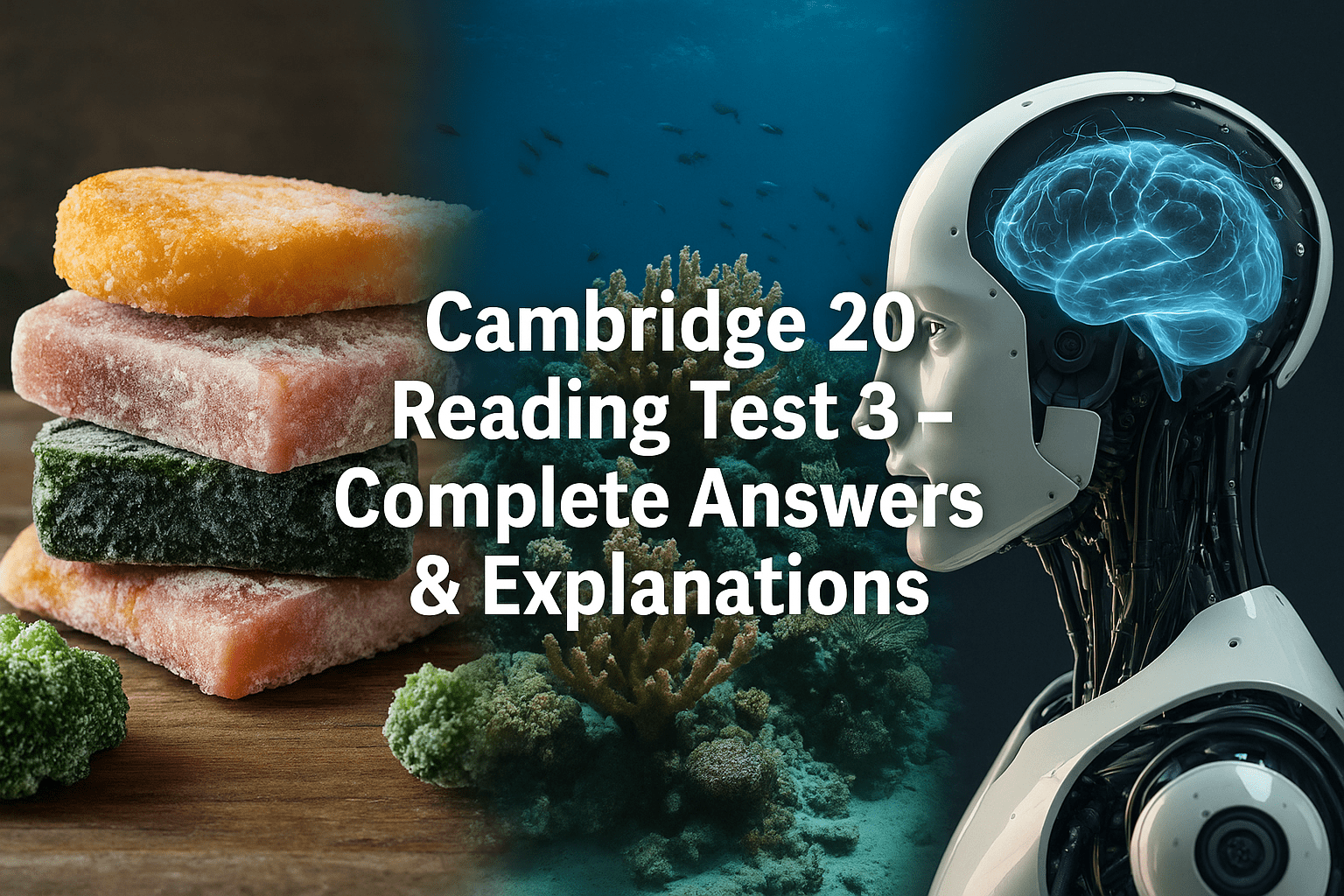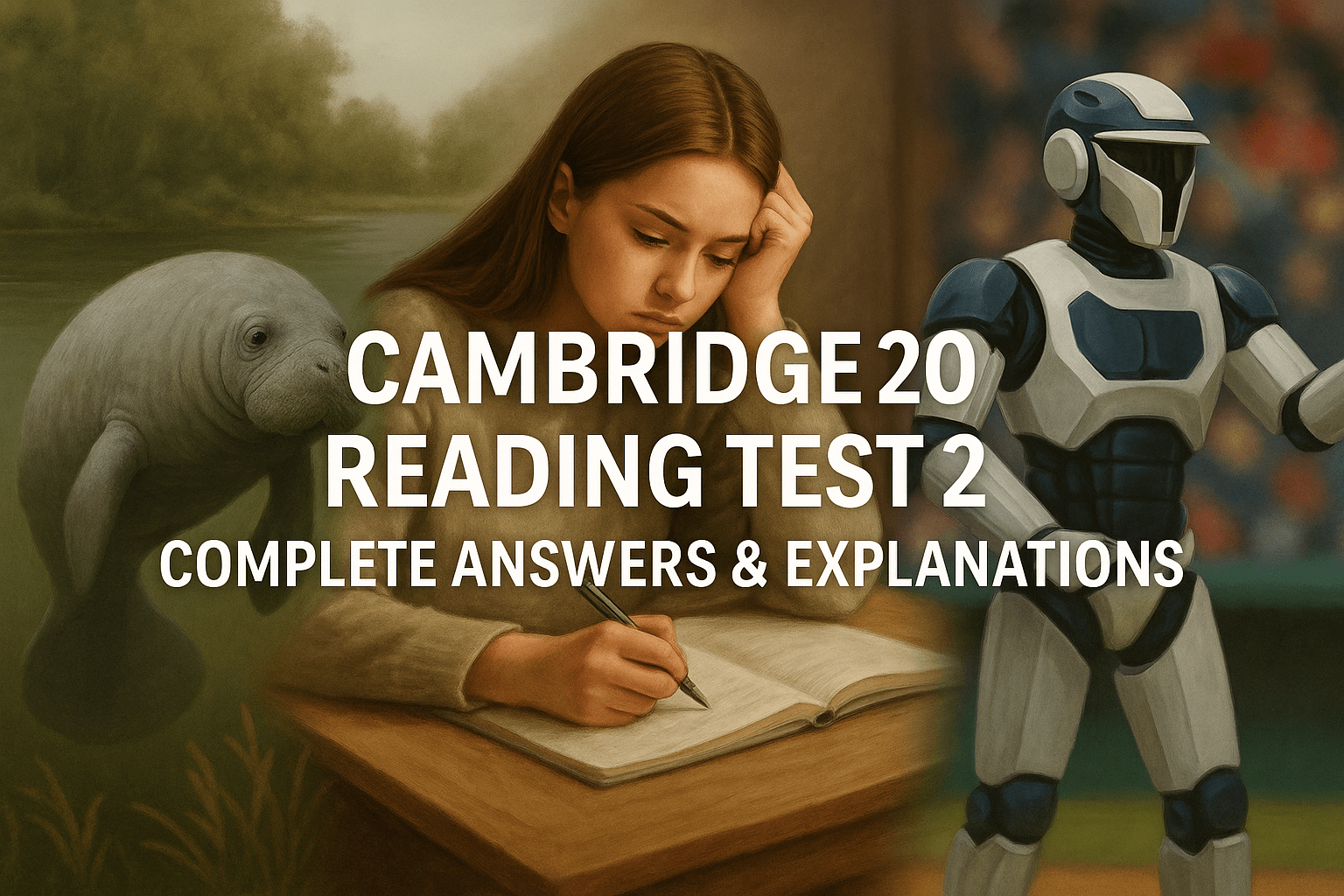As an international IELTS teacher, one of the most common struggles my students face is building strong IELTS Reading vocabulary without feeling overwhelmed by endless word lists. Many learners spend weeks memorizing hundreds of words, only to forget them during the exam. The good news is, you can learn IELTS Reading vocabulary from context naturally—by guessing the meaning of words as you read—without relying on memorization.
Over the years, I’ve helped thousands of learners worldwide overcome this challenge. Let me share how you can do the same, step by step.
Why Learning Vocabulary from Context Works
When students first come to my class, many confess that they’ve tried everything: flashcards, word apps, and even sticky notes on their walls. But during practice tests, they freeze when an unfamiliar word appears.
Here’s what I tell them:
-
In IELTS Reading, context is your best dictionary.
-
Guessing meaning from surrounding sentences helps you understand the idea without stopping every few words.
-
This method improves reading speed and comprehension, which is exactly what the examiners want.
I’ve seen this approach turn frustrated Band 5.5 students into confident Band 7+ readers in just a few weeks.
Step 1: Identify the Clues Around the Word
Every word in the IELTS Reading test appears for a reason. Even if you don’t know it, the sentence usually gives hints.
Look for:
-
Definitions in the text: e.g., “Photosynthesis, the process by which plants make food…”
-
Synonyms nearby: e.g., “The eruption caused devastation, or widespread destruction, in the region.”
-
Examples that explain the term: e.g., “Many mammals, such as lions and tigers, are carnivorous.”
During a recent coaching session, a student didn’t know the word fragile. I asked her to look at the sentence:
“The fragile glass vase broke easily when dropped.”
She immediately guessed it meant easily broken—without opening a dictionary!
Step 2: Break the Word into Parts
Another tip I teach is word analysis. Even without full knowledge, parts of a word can reveal its meaning:
-
Prefixes (pre-, anti-, sub-)
-
Suffixes (-able, -tion, -less)
-
Root words (geo = earth, bio = life)
A student of mine once struggled with the word unpredictable. After I guided her to break it down—“un-” (not) + “predict” + “-able”—she immediately understood it meant not possible to predict.
Step 3: Confirm with Contextual Reading
Once you’ve guessed the meaning, read the sentence or paragraph again. Ask yourself:
-
Does my guessed meaning make sense here?
-
Can I understand the overall message without translating word for word?
Practicing this approach consistently helps you absorb IELTS Reading vocabulary naturally and improve comprehension speed—a critical factor for achieving a Band 7 or higher.
Step 4: Practice with Real IELTS Reading Tests
Context-based learning only works if you practice with authentic IELTS materials. I always recommend:
-
IELTS Official for test information and samples
-
British Council for free practice materials
-
IDP IELTS for test preparation tools
Additionally, I’ve created a Band 7–9 IELTS Reading Vocabulary Guide that shows you exactly how to use context effectively.
Common Mistakes to Avoid
-
Relying on translation apps – This slows down reading and breaks concentration.
-
Memorizing long word lists – You forget them quickly without context.
-
Skipping unknown words entirely – You miss the chance to learn from context.
Instead, trust the passage, identify clues, and confirm meaning naturally.
FAQs About Learning IELTS Reading Vocabulary from Context
Q1: Can I reach Band 7 without memorizing vocabulary lists?
Yes! Context-based learning builds lasting understanding and speed, which is essential for higher bands.
Q2: How long will it take to see improvement?
Most of my students notice progress within 3–4 weeks of consistent practice.
Q3: Should I still keep a vocabulary notebook?
Yes, but write sentences from the reading passages, not isolated words. Context helps your brain remember faster.
Q4: Does this method work for both Academic and General IELTS?
Absolutely. Both test types require fast comprehension and the ability to understand words in context.
By focusing on IELTS Reading vocabulary from context, you’ll read faster, understand more, and feel confident even when facing new words. Start practicing today, and your next test result could be the breakthrough you’ve been waiting for!






One Response
Hello there, simply became aware of your weblog thru Google, and located that it’s truly informative. I’m going to watch out for brussels. I will be grateful for those who proceed this in future. Lots of folks can be benefited out of your writing. Cheers!